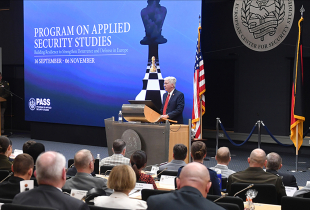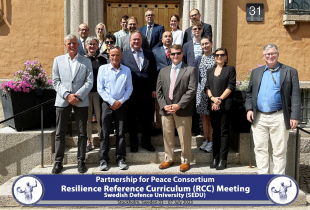
Chapter 5
National Resilience Ensuring System Establishment in Present-Day Ukraine
Strengthening national resilience is a priority of public policy in the field of national security in Ukraine. This is driven by the need to provide preparedness of the state and society to respond to a broad spectrum of threats of various origins, as well as to ensure continuity of the key processes in the country. Ukraine has considerable resilience potential, which is particularly confirmed by its experience in countering Russia’s hybrid aggression. However, augmentation of security and defense force capabilities alone is not enough to build a full-fledged national resilience ensuring system in Ukraine. The appropriate systemic mechanisms are in their initial phase. Their establishment will foster reinforcement and development of the national security ensuring system of Ukraine. The selection of the general national resilience ensuring model should be based on the consideration of national interests, the needs for the state and society development, and specifics of Ukraine’s security environment. The development of public policy in this area requires definition of goals, objectives, and guidelines along certain periods, as well as universal and special national resilience ensuring mechanisms, taking into account the regularities due to implementation of the resilience concept in the field of national security.
The George C. Marshall European Center for Security Studies
The George C. Marshall European Center for Security Studies in Garmisch-Partenkirchen, Germany is a German-American partnership and trusted global network promoting common values and advancing collaborative geostrategic solutions. The Marshall Center’s mission to educate, engage, and empower security partners to collectively affect regional, transnational, and global challenges is achieved through programs designed to promote peaceful, whole of government approaches to address today’s most pressing security challenges. Since its creation in 1992, the Marshall Center’s alumni network has grown to include over 15,000 professionals from 157 countries. More information on the Marshall Center can be found online at www.marshallcenter.org.
This publication reflects the views of the authors and is not necessarily the official policy of the United States, Germany, or any other governments, or any other organization.


